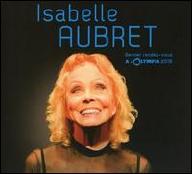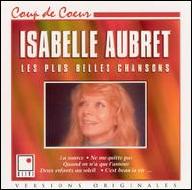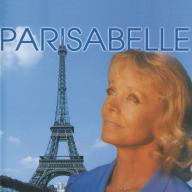A tour with singer Jean Ferrat (who wrote her hit Deux Enfants au Soliel) brought Aubret further attention, as did several high-profile shows with Sacha Distel. She was also support act at Jacques Brel's legendary Olympia shows in March 1963; her career came to a shattering halt, however, when she was involved in a serious car accident. She would be laid up for much of the next three years, but both Ferrat and Brel ensured she would not be forgotten. Ferrat wrote her a new song, C'Est Beau la Vie, which she recorded despite being totally incapacitated at the time, while Brel gifted her with the lifetime rights to one of her favorite songs of his, La Fanette. In 1965, still convalescing, Aubret made a heroic return to the stage, opening for Salvatore Adamo at the Olympia, but it was 1968 before she was truly back in action, when she returned to Eurovision and finished in third place with La Source.
She toured throughout the remainder of the 1960s and, in 1970, she returned to the domestic Eurovision qualifiers when she performed a duet with Daniel Bératta on the runner-up Olivier Olivia. But she was clearly on her way down in the public eye, a victim of both changing musical tastes and her own avowedly left-wing politics. Singles The Partisan and Casa Forte were scarcely promoted, and she was all but blackballed from national TV. A new album in 1973, Le Soleil Est dans une Orange, marked the beginning of her rehabilitation, and in 1976 she was back in the Eurovision qualifiers, performing Je Te Connais Déjà. The song was unsuccessful, but an appearance that same year at the Tokyo Musical Festival saw her awarded the Best Singer award. Four years later, Japanese fans voted her the World's Best Singer, while her albums Berceuse pour une Femme (1977) and Une Vie (1979) were both major successes.
Tragedy struck again in 1981 when Aubret broke both legs while rehearsing a trapeze act with boxer Jean-Claude Bouttier. Although she continued recording sporadically, and even returned to Eurovision one last time, performing France France in the 1983 qualifying contest, it would be 1984 before she released another album, Le Monde Chante, and 1986 before she could return to the road. This period also saw the release of the compilation Isabelle Aubret Chante Jacques Brel. Her political past was forgotten now, and French media finally embraced her. Released in 1985, the single 1789 was a success, while the album Vague à l'Homme was universally praised for its patronage of rising songwriters Romain Didier, Danielle Messia, and Allain Leprest. The latter also opened for her when she appeared at the Olympia in 1987 for her first Paris shows since the early '70s.
She marked the bicentenary of the French revolution with the album 1989, while the 1990s opened with another acclaimed long-player, a collection of English-language jazz standards, In Love. This was followed by what many regard as her finest album yet, a 1992 collection devoted to the work of French poet Louis Aragon. Another release that same year, Coup de Coeur, brought together Aubret's interpretations of some of her favorite French songwriters -- Brel and Ferrat, of course, but also Serge Gainsbourg, Francis Cabrel, Charles Trenet, Jean-Jacques Goldman, Henri Salvador, and Guy Béart. And she crowned the year by accepting the Légion d'Honneur award from French president Mitterrand. The hit album C'Est le Bonheur was released in 1993, while 1996 brought a live show dedicated (like the earlier album) wholly to the works of Louis Aragon. A boxed compilation of albums dedicated to Aragon, Brel, and Ferrat followed, before 1998 saw her tour France (and Quebec) with a new stage show, this time built exclusively around Brel. She saw out the 20th century with a new album dedicated to songs about Paris. ~ Dave Thompson, Rovi

















